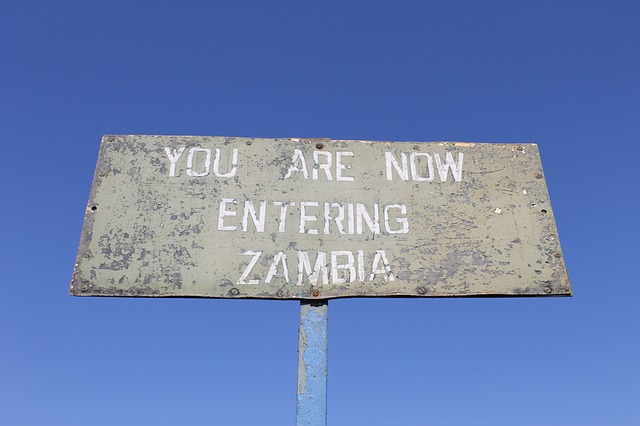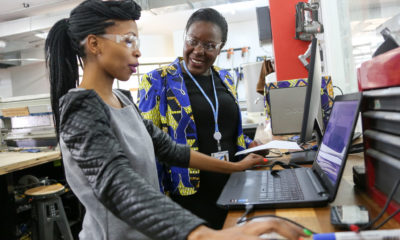In this week’s news roundup, you will read about VALR, a South African cryptocurrency exchange’s expansion into Zambia, a report by the Bank of International Settlements on the survey carried out on some African central banks on CBDC, and more.
South African Crypto Exchange VALR Launches in Zambia
VALR, a South African crypto exchange, has launched its operations in Zambia. The expansion into Zambia will enable Zambians to buy and sell BTC and USD Coins using Kwachas, in addition to the 60+ crypto assets available on the exchange.
 Established in 2018, VALR is the largest crypto exchange headquartered in the African continent. It also allows customers to safely buy, sell and store digital assets at some of the lowest fees globally. Since its inception, the platform has processed more than $10 billion of trades.
Established in 2018, VALR is the largest crypto exchange headquartered in the African continent. It also allows customers to safely buy, sell and store digital assets at some of the lowest fees globally. Since its inception, the platform has processed more than $10 billion of trades.
Speaking about the launch in Zambia, Farzam Ehsani, VALR’s Co-Founder and CEO, said, “As the largest crypto exchange headquartered in Africa, VALR is excited to now be serving the people of Zambia. We’ve built a world-class product with a focus on robust security, high performance, and regulatory compliance, and we look forward to welcoming the Zambian retail and institutional market to VALR.”
The expansion comes nearly nine months after the exchange raised $50 million in a Series B funding round that was backed by global investors such as Avon ventures. Currently, VALR is the only crypto exchange in Zambia that offers a full-service digital asset exchange, local currency order books, and a trading platform.
“VALR is committed to enabling the blockchain ecosystem in Africa, and working with other businesses to expand access to digital assets is an important part of the brand’s ambitious growth strategy,” said Blake Player, VALR’s Head of Business Development. “We welcome startups, mobile wallets, and other fintech to build on VALR and use our powerful API to create exciting products for their customers.”
New BIS Report Shows African Central Banks Actively Interested in CBDC
A new survey conducted by the Bank of International Settlements (BIS) has established that central banks in Africa are interested in the central bank digital currency (CBDC) despite a few drawbacks.
While mobile money has been a great competitor to CBDC, 19 African central banks that responded to the survey have great faith in CBDC thanks to the fact that it can be used to implement monetary policies in Africa, unlike in other parts of the world. While all the 19 central banks that took part in the survey stated they were actively interested in CBDC, only Nigeria has so far launched a digital currency dubbed the eNaira. Ghana and South Africa are currently piloting a retail and wholesale CBDC, respectively.
One primary motivation that 48% of the central banks surveyed listed as a key reason why they would launch a CBDC in their respective countries was the provision of cash. This, they said, would save them money on not just the printing and storage but also on the transportation of banknotes and coins. All the survey respondents also believe that CBDCs would help them achieve financial inclusion.
Despite the positives, the surveyed central banks noted that some of the drawbacks in issuing a CBDC would include the availability and combinability of technologies, cybersecurity, high operational cost, functionalities, network resilience, and scalability.
Bankrupt FTX Invested Millions of Dollars in Two Kenyan Firms
Court papers and regulatory fillings from crypto exchange FTX and Alameda Research, its sister company, filed in a court in the United States have shown that the collapsed crypto exchange invested millions of dollars in at least two Kenyan startups.
According to the documents, FTX, through Alameda Research, invested money into Chipper Cash and Mara. FTX, through Alameda Research, participated in Chipper Cash’s 2021 Series C funding – among other investors – that saw the company raise $150 million for its expansion into Africa. Additionally, Alameda Research also took part in Mara’s seed round funding, where the startup was able to raise $23 million.
The collapse of FTX has gone down will billions of investor funds, leading other crypto firms to file for bankruptcy and further crippling the crypto industry, which has been experiencing a crypto winter since the beginning of 2022.
To learn more about Bitcoin, download the Bitcoin Beginner’s Handbook for free.


 Features3 years ago
Features3 years ago
 Bitcoin2 years ago
Bitcoin2 years ago
 Features3 years ago
Features3 years ago
 Features3 years ago
Features3 years ago
 Features3 years ago
Features3 years ago
 Features3 years ago
Features3 years ago
 Features8 months ago
Features8 months ago
 Bitcoin10 months ago
Bitcoin10 months ago

 Established in 2018, VALR is the largest crypto exchange headquartered in the African continent. It also allows customers to safely buy, sell and store digital assets at some of the lowest fees globally. Since its inception, the platform has processed more than $10 billion of trades.
Established in 2018, VALR is the largest crypto exchange headquartered in the African continent. It also allows customers to safely buy, sell and store digital assets at some of the lowest fees globally. Since its inception, the platform has processed more than $10 billion of trades. 
















 Central African Republic (CAR) has set up a 15-member committee that will be responsible for developing a bill on the use of cryptocurrencies and tokenization in the region.
Central African Republic (CAR) has set up a 15-member committee that will be responsible for developing a bill on the use of cryptocurrencies and tokenization in the region.
